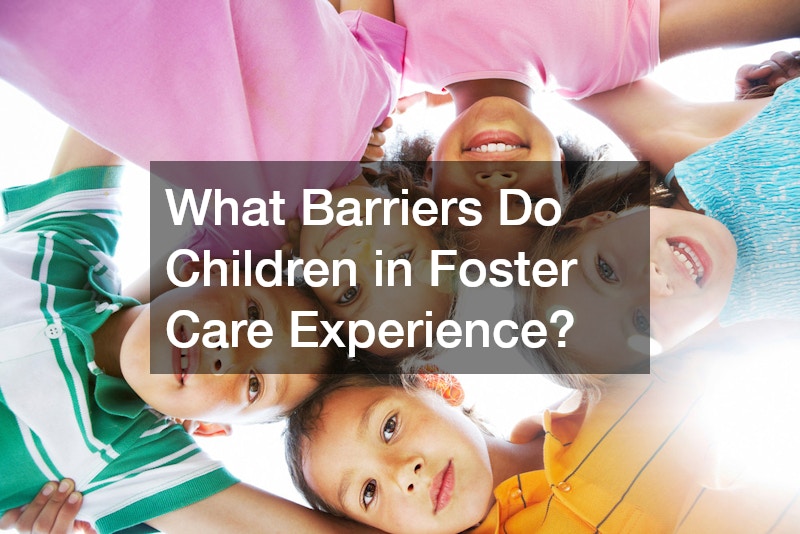
Children in foster care face a unique set of challenges that can significantly affect their development and well-being. These barriers span multiple aspects of life, including emotional, educational, and social challenges, making it difficult for many foster children to thrive without additional support.
Emotional Trauma
One of the most significant barriers for children in foster care is emotional trauma. Many children enter the system after experiencing abuse, neglect, or other forms of instability in their home environment. The loss of biological family, frequent moves between foster homes, and uncertainty about their future can cause children to develop attachment issues, anxiety, or depression.
This emotional trauma often requires professional counseling or therapy to help children process their experiences and build healthy relationships moving forward.
Educational Challenges
Children in foster care also face educational barriers. Frequent placement changes can result in disruptions to schooling, making it hard for foster children to keep up with their academic work. Studies have shown that foster youth are more likely to repeat grades, have lower standardized test scores, and are less likely to graduate from high school than their peers. Inconsistent access to academic resources and support systems can further hinder their educational progress, making it essential for foster care systems to prioritize educational stability and career development for foster kids.
Social Stigma and Isolation
Many children in foster care also experience social stigma, which can lead to feelings of isolation. Foster children often feel different from their peers, especially when they must move between schools or neighborhoods frequently. This can make it difficult for them to form lasting friendships or feel a sense of belonging. Additionally, children in foster care may be hesitant to share their experiences with others due to fear of judgment or misunderstanding, further contributing to their isolation.
Legal and Bureaucratic Hurdles
Navigating the foster care system itself can present numerous barriers. Children in foster care may have limited control over decisions about their placements, medical care, or even visits with their biological family. Legal procedures, court hearings, and foster care case management are often complex and time-consuming, creating additional stress for children. Furthermore, these legal hurdles can lead to delays in finding permanent placements, prolonging their time in the foster care system.
Lack of Stability
A lack of stability is a common experience for children in foster care. Many children are moved multiple times between different foster homes, which disrupts their sense of safety and routine. This instability can lead to behavioral issues, as children may struggle to adjust to new environments, rules, and caregivers. Stability is crucial for a child’s development, and without it, they may face long-term emotional and psychological difficulties.
Watch the video above to learn more. .

